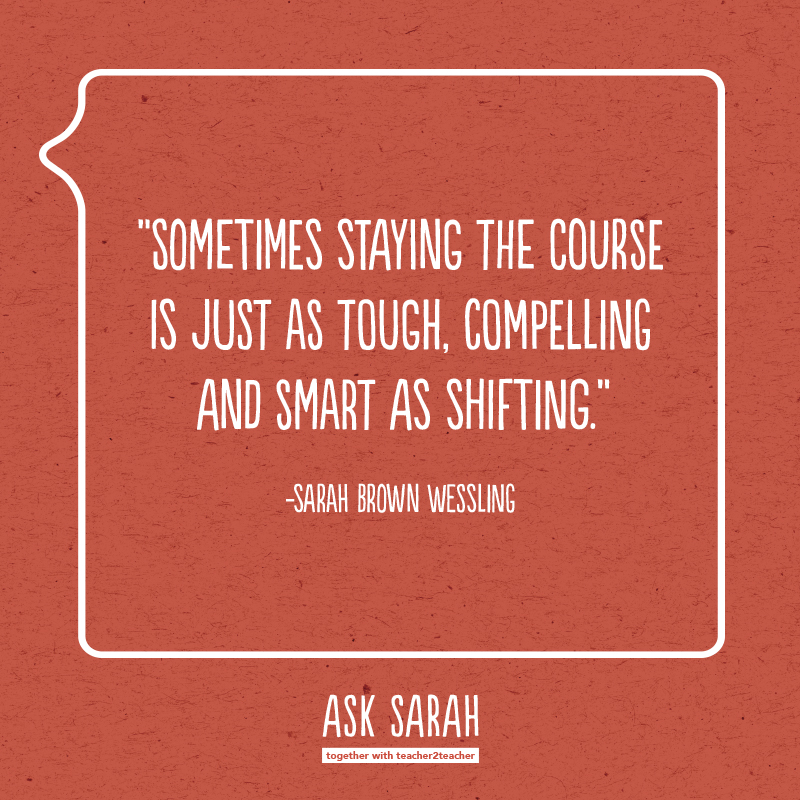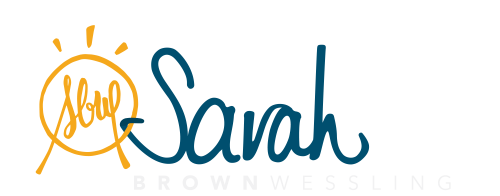
I’m a new teacher and am looking forward to my first winter break. This first year has been an exciting and exhausting experience. There were lots of great days and some really tough ones too. I’m not sure what to expect after the break and I’m not sure how I should approach it. Should I think about starting over or continuing? How do I build on the good things we’ve done and make progress towards the things I want to do differently? Any advice you have would be helpful!
Sincerely,
New Teacher, New Year

First, I really want to know whether or not you escaped spending your entire break fighting a cold or some other ailment that you were able to outrun until that first day of actually slowing down (probably for the first time) since school started. If you did, consider yourself lucky! If not, know that it seems to be the most predictable gift of the holiday season for many of us.
And congratulations on making it to this first milestone of your first year! Even if your brain feels fuzzy and your sleep patterns are very confused, know that you’ve already accomplished so much. You’ve navigated your first set of parent/teacher conferences, you’ve maneuvered school routines and learned how to have collegial conversations. You’ve very likely had days where one of your students did something so amazing, it brought you to tears. It’s just as likely you’ve had discouraging, frustrated tears in these early months.
Whatever your experience has been like, it’s brought you to a well deserved break (of which I sincerely hope you used to take care of yourself) and also to one of the gifts of this profession: the starting anew. It’s a turning of the lake, a changing of the season. Along with this transition comes movement in your evolution as a teacher, the chance to reflect and grow. As you’re applying the wisdom you’ve earned, here are a few considerations.
- Read your reality. People who persevere and remain hopeful are also brutally honest. They read their reality frankly. So, write, talk, meditate, read — whatever it takes to get clear. Then promise me this: you’ll remember there’s a difference between honesty and judgment. Honesty will propel you forward, but judgment will paralyze you.
- Don’t try to change everything. If it’s change you’re after, then pick one thing. The thing you believe will affect the others. Then do that one thing with all you’ve got. Build your habits and your rituals around it. Make it the language of your classroom because you talk about it with your students, you reflect on it with your colleagues, and you push back on it through your social networks. Doing one thing deeply will nurture more learning than doing many things lightly.
- Recognize your own bright spots. I’ve learned that unpacking what’s going well for my students is just as important as unpacking what isn’t. So celebrate! But don’t stop there, dig until you know why that lesson, that strategy, that impromptu change worked.
- Be patient. I can’t tell you how many years I’ve worried that I’m not making a difference, only to discover I had to wait until the very end of the year to finally see the learning emerge. Learning is slow and each student has his or her own barometer. Be flexible by paying attention to your students, but don’t fall into whimsy because you’re worried the plan isn’t working. It takes vision and confidence to remain steady and channel the slow patience learning requires.
- Only change what isn’t working. Honestly, there will always be something to get better at in this profession. So don’t feel forced to change “just because.” Sometimes staying the course is just as tough, essential and compelling as shifting direction. When you change, do it because your gut tells you it’s necessary, because the student work in front of you demands it. Otherwise, practice patience and perseverance.
- Be human. You’re not supposed to be perfect. You’re supposed to be a real learner, the lead learner. Tell your students what you learned from them and why some things may change. Expose your thinking as well as your mistakes. Exude enthusiasm and own vulnerability. Be your own, best, imperfectly beautiful self.
- Pay attention to your learners. At the end of the day, no one knows the fabric of your classroom like the people who are meant to learn in it. Ask them what they’ve learned and how they’ve learned it. Watch to see if they are figuring out how to learn without you. Listen for their changing questions that signal growth and tell them everyday they can. These trails we traverse can be tricky, but you’ll find your way when the students are your map.
Even though it may be a new year, you don’t need a new you. Breathe deeply of this fresh air and know you are making a difference.
Teach openly,
With Teacher2Teacher




I thought this article to be very inspiring! Thank you.
Thank you, Darla. I’m so glad it resonated for you.